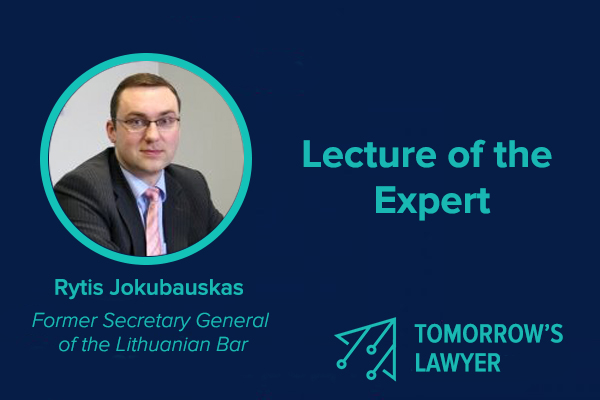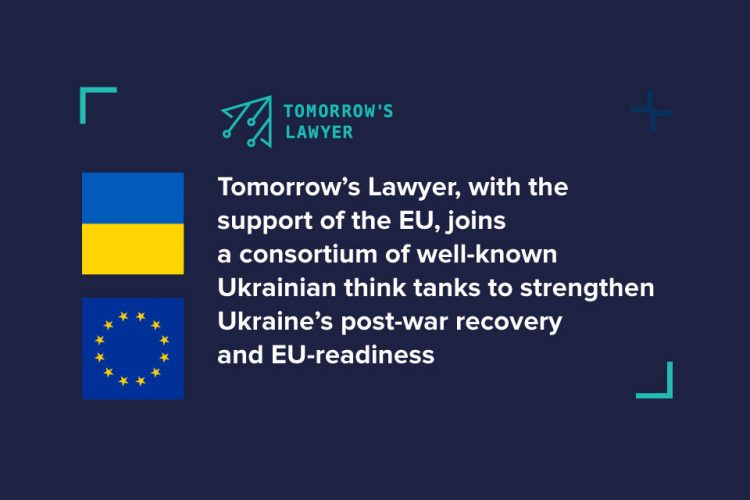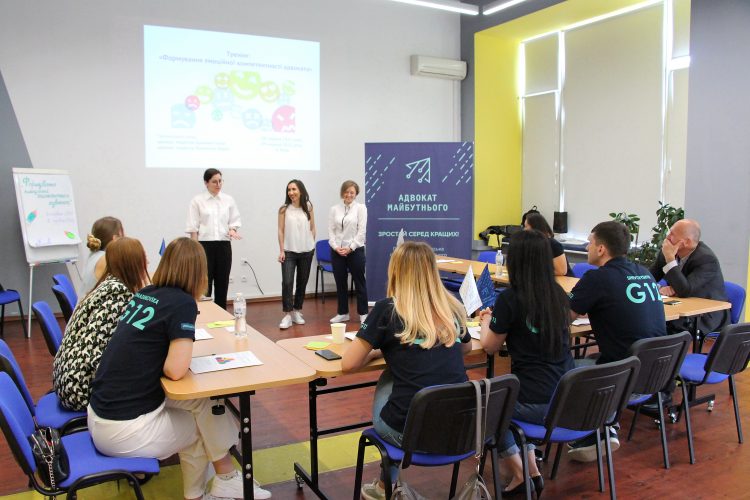


Rytis Jokubauskas: Lawyers Should Be Treated as if They Always Have the Right to Leave the Professional Association
Rytis Jokubauskas is a former Secretary General of the Lithuanian Bar. In his video lecture, Rytis Jokubauskas talks about membership in the Lithuanian Bar Association; applicable legal fees; law practice and continuing professional education.
In most European countries, Bar membership is obligatory. The exception is some of the northern countries where historically lawyers may not be the members of professional associations, but at the same time 90% of lawyers join in such organizations. It is important to note that the condition of mandatory membership is not a violation of the lawyer’s right to association. Lawyers should act as if they always have the right to leave a professional association. It would benefit all: lawyers, associations, and the professional community as a whole.
In general, the functions of the legal self-government include regulation and representation. The profession regulates lawyers’ activities: adopts ethical codes, establishes professional requirements for lawyers, disciplinary procedures, and so on. Such functions are performed by the lawyer’s association itself, because lawyers directly understand the specifics of the profession. Thus, through their membership, lawyers exercise the right to self-government, lacking which the democratic existence of the legal profession is not possible.
Regarding the representative function, it involves legal advocacy – lobbying the laws on the Bar and legal profession. Nevertheless, we shall not restrict ourselves to legislative acts that regulate our profession. Since the main task of lawyers is the protection and promotion of human rights at all levels, including the legislative level. In addition, lawyers represent advocates’ interests in communicating with the courts, resolving various issues, ranging from special premises for lawyers in courts, and to court practice in remuneration for lawyers’ fees. At the international level, it is an exchange of best international experience.
The most important element of the representative function of the legal profession is the protection of professional rights of lawyers in emergency situations: during searches, criminal cases against lawyers, violation of lawyer’s secrets. It is in the interests of every lawyer to uphold the standards of such protection when it comes to the protection of the professional rights of lawyers. In order for this system to operate effectively, we need to elaborate relevant processes within the community.
Speaking about the services provided by association to its members, we also have in mind continuing education, seminars and conferences and other events. In some countries, Bar associations also have private pension funds and even own credit lines.
In Lithuania, there is only one Bar association, in Poland, Bulgaria, Romania there are several levels of such organizations – national and local. It depends on the structure of such organizations. The certificate of the Lithuanian Bar Association allows me to represent clients throughout the European Union.
Self-realization of lawyers in such organizations takes place by taking certain positions. Usually you need an advocate’s experience to be elected to some position. In Lithuania – 10 years of work experience and this is the only requirement.
This is a brief description of the lecture. To find out more about the experience of Lithuanian Bar Association, please watch this video.
The opinions expressed in this article are the author’s own and do not reflect the view of the “Tomorrow’s Lawyer” Program, the Ukrainian Bar Association, the Bar Association of Legal Aid Providers, the Quality and Accessible Legal Aid in Ukraine Project, the Canadian Bureau for International Education, or the Government of Canada.
The “Tomorrow’s Lawyer” Program is being implemented by the Ukrainian Bar Association and the Bar Association of Legal Aid Providers, with the support of the United States Embassy in Ukraine and The Quality and Accessible Legal Aid in Ukraine Project funded by the Government of Canada and implemented by the Canadian Bureau for International Education (CBIE). The Program was developed during 2016-2017 with the support of The Quality and Accessible Legal Aid Project with an expert contribution from the Canadian Bar Association.
The opinions expressed in this article are the author’s own and may not reflect the view of the “Tomorrow’s Lawyer” Program and its Partners.


